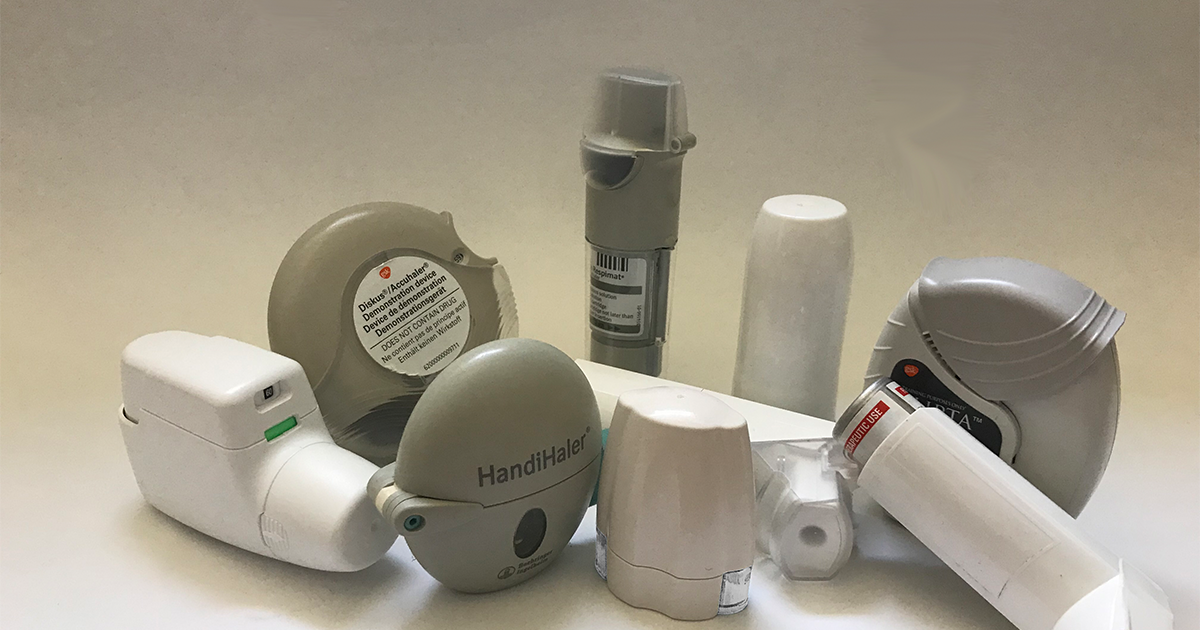The Woolcock Institute of Medical Research

Green inhalers and asthma care: a fine balance
The push to move asthma sufferers to use more environmentally-friendly inhalers must be done with caution and with the patients’ safety as first priority, respiratory experts warn.
The Global Initiative for Asthma (GINA) is an international organisation that publishes an annually updated evidence-based strategy aimed at reducing asthma prevalence, morbidity and mortality. GINA experts have recently penned an article for The Lancet arguing that control of the disease must remain a primary goal, while we also push for environmentally-friendly asthma care.
In Australia, asthma affects one in nine children and adults (more than 2.7 million people). Many treatments for asthma in Australia come in pressurised metered-dose inhalers (pMDIs), often called puffers. When one of these inhaler devices is actuated, a dose of medication is delivered from the inhaler by a propellant gas, so it can be breathed in by the patient.
However, the propellants in these inhalers have a carbon footprint that is much greater than that of dry powder inhalers (DPIs), which store the medicine as a powder inside the inhaler (or in a capsule). With a DPI, the patient loads a dose by pushing a lever, or twisting the inhaler, or loading a capsule, then they inhale the medicine. DPIs do not contain any propellant.
Want to stay up to date with our work on asthma, hay fever, COPD and other respiratory conditions? Sign up to our monthly newsletter
It is now believed that metered-dose inhalers have a carbon footprint that is 25 times that of dry powder inhalers, mainly because the propellant gases in puffers (pDMIs) are potent global warming gases (hydrofluoroalkanes or HFAs).
Although pMDIs contribute less than 0.1% of global carbon emissions, every bit counts. In addition, the emergency visits and hospitalisations needed by many asthma patients when their asthma is uncontrolled itself has a heavy contribution to global carbon emissions.
The Woolcock Institute of Medical Research’s Professor Helen Reddel, who chairs GINA’s Science Committee, said that while environmental concerns are important, doctors must first and foremost work together with their patients to optimise their asthma management care. This includes choosing medication that will both relieve their symptoms and protect them from having asthma attacks.
“Asthma management should be based on shared decision making with the patient, with the overall aim being to optimise their care, as well as minimising the carbon footprint of asthma and its treatment,” Professor Reddel said.
“While for some people, environmental considerations are the first thing they think of in any lifestyle choice, for many others, life is already difficult, and even a small difference in ability to use an inhaler or higher cost could prevent them from using it.”
Professor Reddel also pointed out that not everyone has access to the more environmentally-friendly dry powder inhalers. In Australia, unlike other countries, there isn't a readily available dry powder inhaler device for one of the most common medications prescribed for asthma, salbutamol (sold under brand names such as Ventolin).
In addition, some patients cannot use a dry powder inhaler, such as children and elderly people, as “they are not able to generate enough inspiratory flow for the medicine to be delivered effectively,” Professor Reddel added.
“If you switch from one inhaler to another and you don't check that the patient can use the inhaler, their asthma may become uncontrolled. Uncontrolled asthma also carries a significant environmental burden, through increased hospitalisations and emergency department presentations,” she added.
“Inhaler choice is not one-size-fits-all,” Professor Reddel said. “The greenest inhaler is the one that the patient will use correctly, and that will control their symptoms and prevent asthma attacks.”
This article first appeared in thelimbic
Find out more










